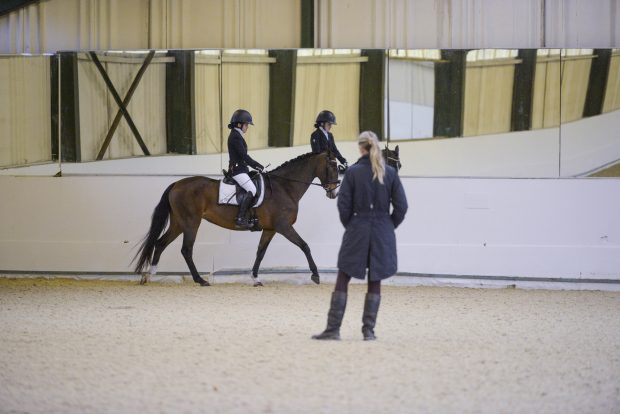Buying a horse: part one – first considerations
Searching for the perfect horse can be time consuming, but the following tips should help you streamline the process and reduce the likelihood of wasted journeys to view unsuitable equines:
• Be realistic about what you are capable of handling and riding. Don’t start looking for a horse to bring on if really you need one that’s more established. Owners “overhorsing” themselves is a common, and often costly, mistake, no matter what your level of riding is. It doesn’t take much to give your confidence a knock, so don’t be tempted to take on too much.
• Tell your friends and equestrian contacts that you are looking to buy a new horse. They may know of a suitable equine that hasn’t been advertised yet. Also check out equestrian websites that specialise in horses for sale such as Horseandhound.co.uk, and look in the back of the latest issue of Horse & Hound magazine. You could also look on social media and the notice board of your tack shop or feed merchant.
• It sounds obvious, but read the advert thoroughly and make sure you don’t miss anything. Look out for phrases like ‘not a novice ride’ and don’t waste time ringing owners about horses that aren’t suitable or are priced over your budget.
• While reading the advert think about what information is missing from it. Ask yourself, why does the ad not say “no vices” or ‘‘100% catch, box, shoe”? Note these down to ask the seller about if you decide to ring them.
If you’ve seen a horse advertised that you’re interested in, ring the seller and ask appropriate questions to help you decide if it is worth going to view the horse. It might well be “the one”, but by asking the right questions you can avoid a wasted journey and get a feel for whether the seller is genuine.
If the advert only included still images of the horse, ask the seller if they have got any video clips of the horse doing the activities you are interested in. Videos give a better idea of how a horse moves and jumps than a static image does and, with smart phones and WhatsApp, it’s easy to record and share video clips. If the seller is unable to provide some recent video of the horse, this should be a cause for concern.
When you ring the seller it’s worth trying to find out more about:
- The horse’s experience
- His capability
- His temperament
- Does he have a competition record?
- How long he has been his current owners?
- Why he is being sold?
- What they think his potential is?
- What he has done with these owners?
- Is he good to hack? Alone and in company?
- Is he good in traffic?
- How does he load and can you take him out in your horsebox or trailer on your own?
- Do the owners know his full history?
- Is he good with the farrier, clippers, with other horses in the field?
- How often is he currently being ridden? Does he need riding every day to ensure he behaves at his best?
Also ask the seller whether the horse is theirs, or if they are selling the horse on behalf of another person, and if buying and selling horses is their business. Different rules apply to private and business sales, so you should always find out which type of sale is being offered before proceeding. There are a number of facebook groups dedicated to raising awareness of “dodgy” sellers, so it’s worth checking out their name to see if they have a good reputation before proceeding with a viewing.
If, after speaking to the seller, you decide you would like to proceed with a viewing, now is the time to organise that. H&H does not recommend buying horses unseen – it’s always better to have seen the horse in the flesh, tried the horse in appropriate situations and dealt with the seller face-to-face to avoid being scammed or sold a horse that is not as described.
There has been an increase in recent years of sellers asking potential buyers to put down a deposit in order to view a horse. This is not something that H&H recommends buyers agree to pay as there is no guarantee that you will get your money back if the horse doesn’t suit your needs. Also we are aware of cases where buyers have paid a deposit and arrived to view the horse at the agreed location to find out the yard and horse doesn’t exist.
Next step: Viewing horses for sale
Ultimate guide to buying a horse
Buying a horse: Horse & Hound’s ultimate step-by-step guide
Buying a horse: viewing prospective horses
Buying a horse: important dos and don’ts
Buying a horse: the vetting or pre-purchase examination
Buying a horse: final questions, payment and when you get your new horse home
Make sure you set aside plenty of time enjoy the journey of finding your perfect equine partner, as it could easily last a few months, but it will be worth it in the end.





